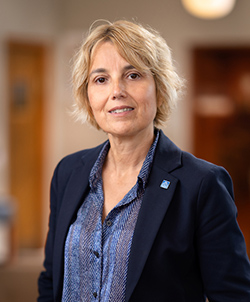The SCI faculty plays a pivotal role in KTH’s mission, contributing 22.5% of the university’s GRU funding and producing approximately 3,300 full-time student equivalents (HST), corresponding to around 18 HST per faculty member. Additionally, the faculty supports internal academic service equivalent to 15 full-time positions, shared among approximately 70 faculty members.
To ensure a fair and transparent distribution of responsibilities, we have developed a structured framework that is based on our core responsibilities—Education and Research—while also taking into account Academic Service. This framework formalizes the approach already largely followed at SCI, reflecting shared practices that support the collaborative spirit of our academic community. Education includes activities such as undergraduate teaching (including supervision), graduate education (excluding PhD supervision), professional development, and other KTH-related teaching initiatives. Research encompasses areas such as independent research, PhD supervision, research leadership, and external collaboration. Academic Service involves roles such as leadership in education (e.g., GA, PA, directors of studies), departmental leadership (e.g., head of department, deputy head, division head), school-level leadership (including faculty board roles), and KTH central assignments.
To maintain alignment with the school’s strategic goals, SCI has introduced proportional guidelines for balancing responsibilities across faculty positions. These guidelines are summarized in the table below:
| Position | Education + Academic Service | Research |
| Assistant Professor | At least 20% | Up to 80% |
| Associate Professor | At least 25% | Up to 75% |
| Professor | At least 30% | Up to 70% |
Download the guidelines: En uppdragsbeskrivning för fakulteten vid skolan för
teknikvetenskap (SCI)
These guidelines aim to ensure a sustainable and transparent allocation of tasks across different roles. Importantly, the distribution is not directly tied to financial allocations, and exceptions may be addressed on a case-by-case basis through discussions with the Head of Department, who holds the ultimate responsibility for the distribution of faculty responsibility.
An important part of this framework is that these allocations and expectations will be discussed annually during individual development meetings (medarbetarsamtal). This process ensures that responsibilities are regularly reviewed and adjusted to align with both individual aspirations and institutional goals.
By embracing these shared principles and working together, we can continue to foster a thriving academic environment that supports both individual growth and collective success, ensuring that SCI remains a cornerstone of excellence at KTH.

